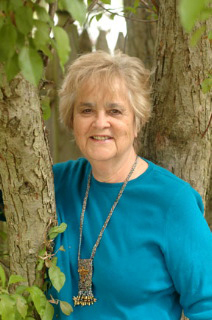Kaitlyn Dunnett: Please welcome today’s guest, historical mystery writer M. E. Kemp. She is the author of a lively series featuring two nosy Puritans as detectives. In that era, Maine was still part of Massachusetts.  Kemp was born and raised in Oxford, MA where their basketball rivals were from Oxford, ME. She tells us that when she’s not flying over Salem on her broomstick, (her roots go back to Salem, 1636), she lives in Saratoga Springs, NY. Here’s what she has to say about Maine’s connections to the Salem witch trials:
Kemp was born and raised in Oxford, MA where their basketball rivals were from Oxford, ME. She tells us that when she’s not flying over Salem on her broomstick, (her roots go back to Salem, 1636), she lives in Saratoga Springs, NY. Here’s what she has to say about Maine’s connections to the Salem witch trials:
M. E. Kemp: How could an area noted in colonial times for its timber, timber products and its moose possibly have any connection with the Salem witch trials? Pastoral, innocent Maine? HA! A hellhole of witchery, wizardry, lust and deceit, that’s what Maine was proven to be by the trials in Salem. This doesn’t even take into account the vast number of natives in the region, and we all know the Abenaki reputation for such magic tricks as making people disappear and causing men with full heads of hair to go bald in a trice.
Salem, remember, was the closest large settlement and safest point for Maine settlers who streamed into the town following native attacks. In fact, at least one book of the many, many tomes written about the witch trials blames the influx of Maine settlers for the trials themselves. It is an odd fact that one of the “accusers,” Mercy Lewis, and one of the accused, Maine preacher George Burroughs, together survived an earlier native attack. Mercy was one of those from Maine who fled to Salem for safety. She was also one who saw the ghosts of the two dead wives of George Burroughs who announced to her that George had murdered them. The second dead wife insisted she was murdered because George wanted to lie in lust with his third and current wife. She even showed the spot beneath her arm pit where she was stabbed. The judges didn’t bother to check on that, though. Everyone knows ghosts don’t lie.
It’s also an odd fact that Mercy Lewis worked as a servant in the household of the Putnam family, who became the major accusers at the trials, and that the Putnam brother had at an earlier time arrested Burroughs for debt. Burroughs had been the minister of the Salem church at one point. When he left the Salem church to preach in Maine he left behind some enemies; real ghosts that came back to haunt him! George Burroughs had to be a wizard with magical powers because he was so strong! Why, he could lift a musket straight up with one finger stuck in the barrel! That was enough wizardry to get the man hung.
Governor Benjamen Phipps, a Maine man himself, set up the trials and then went off to Maine to fight Indians while they were going on. It’s only when Mrs. Governor Phipps was accused of being a witch that he bothered to pay any attention to Salem, and then he pardoned everybody, dead or alive. And there were 20 dead; 19 hung and one man pressed to death with boulders. Oh, it was all legal, by the way. English law books were followed to the letter. And it wasn’t just old women and contentious men who were accused in Salem. Philip English was a wealthy merchant with shipping interests off the Maine coast, and he was accused by “the afflicted children.” (Children my foot – once the original frightened 12 year olds were sent away, the accusers were between the ages of 17 and 21.) English did the smart thing and ran away, he and his wife, even though his property fell forfeit to the Sheriff. (That’s why Giles Corey chose to be pressed to death, because that way his heirs could inherit his property.) But English got his revenge in a ghoulish fashion. When Sheriff Corwin died, English claimed his body for debt and refused to bury it until he got his money back. They played tough in colonial times.
Not only were they tough, but they were a lusty lot, those Maine settlers. In one very serious work on the Maine frontier the historian notes that as a result of people being forced to garrisons for protection against the natives, “this encouraged departures from ordinary social conduct, even by Maine standards.” (Do I detect a little prejudice here?) The author goes on to call one young lady a “tart” who enjoyed the proximity of all those men in the garrison. I mean she REALLY enjoyed them. He tells another anecdote about a hearty young lady who knocked her boyfriend about in a fight. So even under the threat of native warfare, it’s nice to know that Maine couples took no prisoners in the War Between the Sexes.
So you can understand why there was such a connection between Maine and the Salem witch trials. Surely the judges were envious of all the sex, lies and lust that went on in the Big Woods.





 Kait Carson
Kait Carson

 Charlene D’Avanzo
Charlene D’Avanzo 







Please notify me if there are any comments on this post — Thanks! Marilyn aka: M.E.kemp